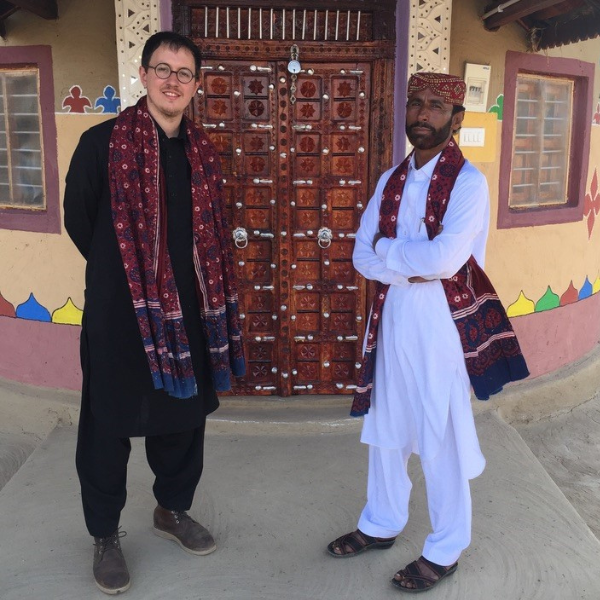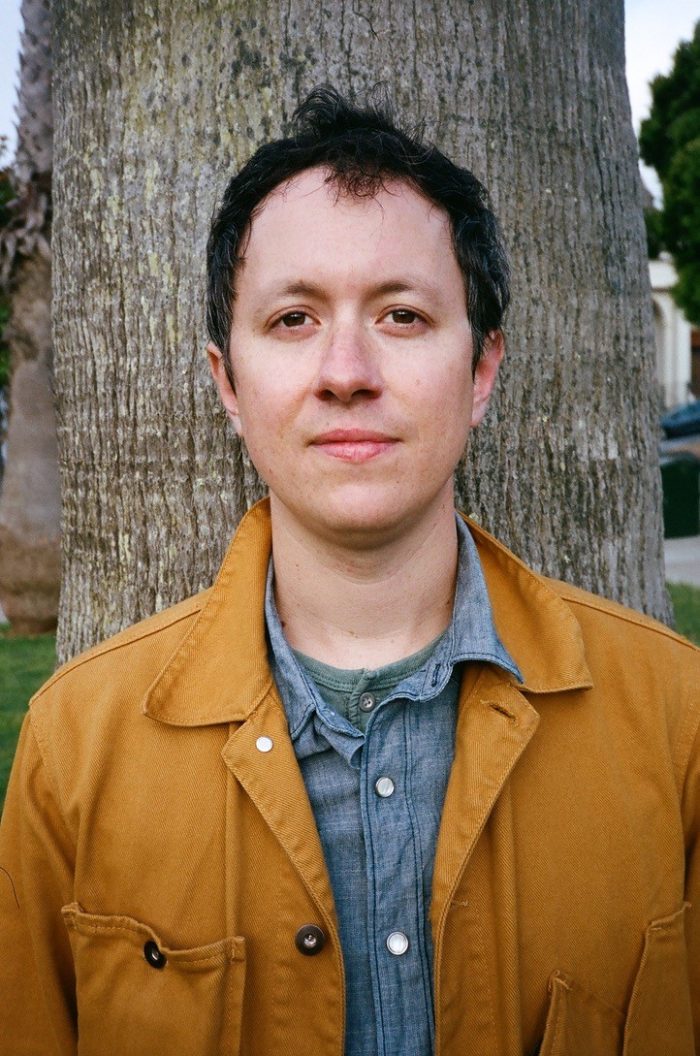Brian Bond F’23 first discovered his love for music when he was 12 years old, a passion that has persisted ever since. In fact, it was Bond’s lifelong admiration for the Beatles that sparked his interest in South Asian music, a topic he has continued to explore as a 2023 ACLS Susan McClary and Robert Walser Fellow.
Captivated by the Sufi musical performances of Pakistani singers Abida Parveen and Nusrat Fateh Ali Khan as an undergraduate student at Rutgers University, Bond was eager to learn more about Sindhi Sufi musical culture and histories of interreligious music in western India.
“My eventual focus on Sindhi Sufi music was motivated by the fact that I was deeply moved by the music and wanted to learn more about the ethical and spiritual import of the metaphorical Sufi poetry that is at this music’s core,” Bond said. “When I discovered that there are singers in Kachchh, Gujarat–on India’s western border, adjacent to the Sindh province of Pakistan -who also perform this music, I became very curious about the political implications and symbolic weight of their ongoing transborder connections with musicians and listeners in Pakistan.”
Through the generous support of Susan McClary and Robert Walser, the ACLS Susan McClary and Robert Walser Fellowship in Music Studies is awarded to scholars like Bond who are conducting exceptional research in musicology. The award is part of the ACLS Fellowship Program, which supports outstanding scholarship in the humanities and interpretive social sciences, and since 2021 has been awarded to untenured scholars who have earned a PhD within eight years of their application.

I want to demonstrate the centrality of musical practice and poetic knowledge to localized Islam in western India. I am also interested in highlighting positive forms of interreligious interaction through musical practice, which I believe is deeply relevant to socio-religious politics in contemporary India.
Brian Bond F’23
Left: Brian Bond with the kāfī singer Arab Jat of Kachchh, Gujarat.
Bond’s project, “Singing Islam: Sufi Music and Socio-religious Change on India’s Western Border” analyzes how the history and current practice of Sindhi Sufi music in Kachchh relate to socio-religious transformations that have taken place there since the 1970s. Despite the tensions between a predominately Hindu India and a majority Muslim Pakistan that have persisted for decades, Bond explores how Sindhi Sufi music and poetry have created a space of interreligious sociality in Kachchh.
The project explores two music genres and one melodic poetry recitation genre associated with the eighteenth-century Sindhi poet and saint Shah Abdul Latif Bhitai. Bond considers many elements of Sindhi Sufi music including how Sufi performances spread religious and ethical teachings in rural Muslim communities, the shared concepts between Hindus and Muslims that reinforced interreligious music making, the transborder and transregional connections created by music, and the reasons why Islamic reformists have opposed Muslim music-making.
“I want to demonstrate the centrality of musical practice and poetic knowledge to localized Islam in western India,” Bond said. “I am also interested in highlighting positive forms of interreligious interaction through musical practice, which I believe is deeply relevant to socio-religious politics in contemporary India.”
Bond is now turning his project’s work into a monograph based on research he conducted in western India and southeastern Pakistan from 2014 to 2022. He says he applied to the ACLS Fellowship Program because it would allow him to focus solely on his book project.
“This fellowship has been indispensable to moving this project forward,” he explained. “I have been teaching intermittently as a visiting lecturer at University of California, Berkeley but have not secured a tenure-track job. The fellowship has provided me with the time, funds, and motivation to advance this project.”
ACLS Fellowships
Our longest running program, the ACLS Fellowship Program supports outstanding scholarship in the humanities and interpretive social sciences. In the most recent competition year, ACLS awarded approximately $3.8 million in support to 60 exceptional scholars.




